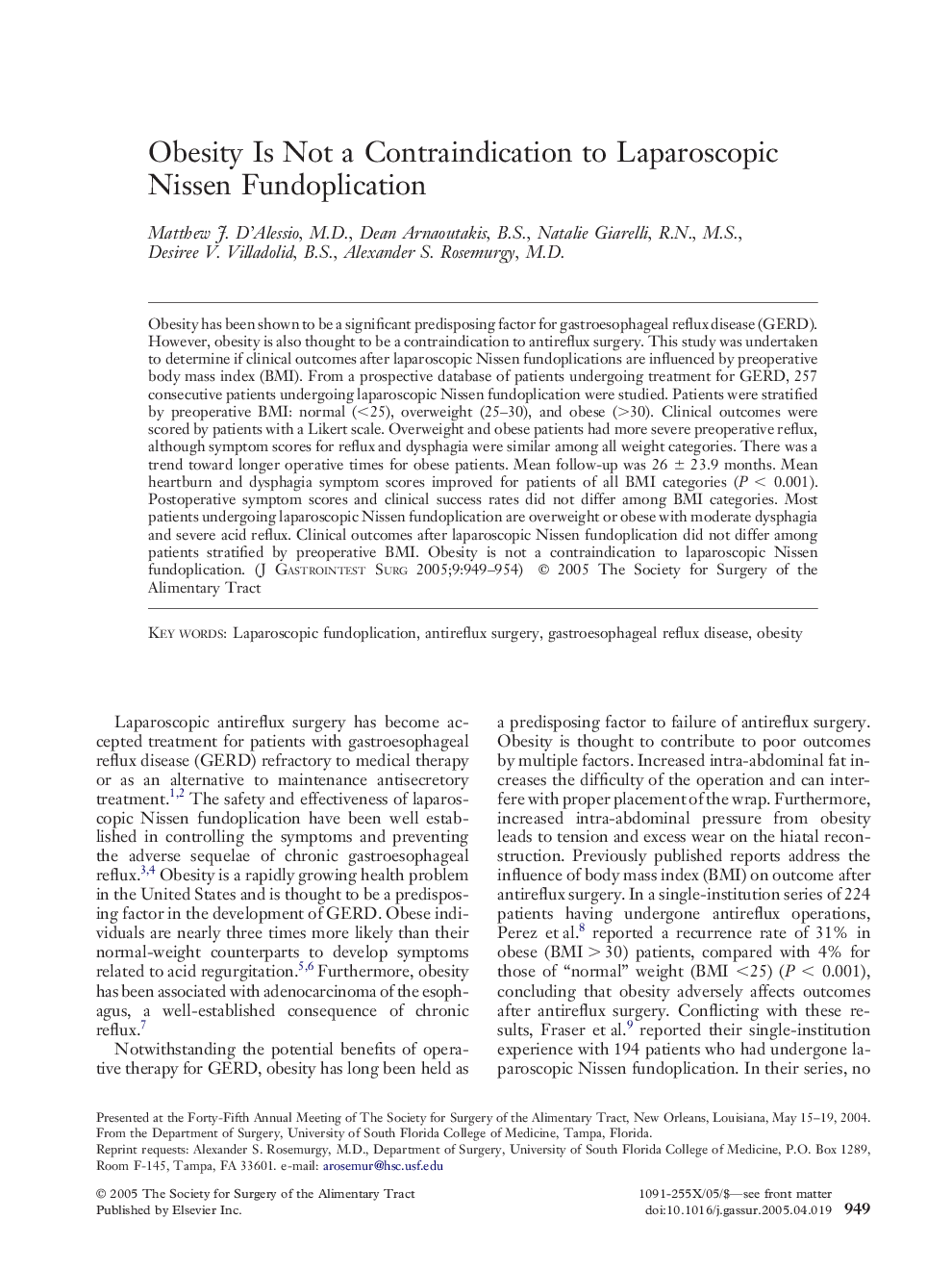| Article ID | Journal | Published Year | Pages | File Type |
|---|---|---|---|---|
| 9401277 | Journal of Gastrointestinal Surgery | 2005 | 6 Pages |
Abstract
Obesity has been shown to be a significant predisposing factor for gastroesophageal reflux disease (GERD). However, obesity is also thought to be a contraindication to antireflux surgery. This study was undertaken to determine if clinical outcomes after laparoscopic Nissen fundoplications are influenced by preoperative body mass index (BMI). From a prospective database of patients undergoing treatment for GERD, 257 consecutive patients undergoing laparoscopic Nissen fundoplication were studied. Patients were stratified by preoperative BMI: normal (<25), overweight (25-30), and obese (>30). Clinical outcomes were scored by patients with a Likert scale. Overweight and obese patients had more severe preoperative reflux, although symptom scores for reflux and dysphagia were similar among all weight categories. There was a trend toward longer operative times for obese patients. Mean follow-up was 26 ± 23.9 months. Mean heartburn and dysphagia symptom scores improved for patients of all BMI categories (P < 0.001). Postoperative symptom scores and clinical success rates did not differ among BMI categories. Most patients undergoing laparoscopic Nissen fundoplication are overweight or obese with moderate dysphagia and severe acid reflux. Clinical outcomes after laparoscopic Nissen fundoplication did not differ among patients stratified by preoperative BMI. Obesity is not a contraindication to laparoscopic Nissen fundoplication.
Related Topics
Health Sciences
Medicine and Dentistry
Surgery
Authors
Matthew J. M.D., Dean B.S., Natalie R.N., M.S., Desiree V. B.S., Alexander S. M.D.,
